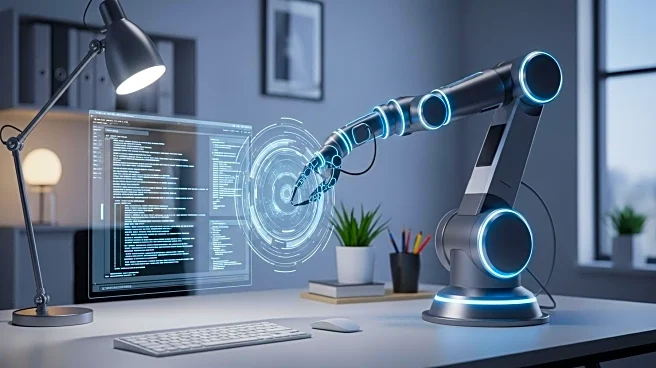What's Happening?
Klarna CEO Sebastian Siemiatkowski has been using AI tools to generate coding prototypes, which he then presents to his engineering team for review and implementation. Despite having no prior coding experience, Siemiatkowski uses the AI-powered code editor Cursor to create these prototypes, taking approximately 20 minutes per project. This approach has led to mixed reactions among employees, as they are tasked with refining and implementing the AI-generated ideas. Siemiatkowski's initiative follows a previous attempt to replace parts of the workforce with AI, which resulted in rehiring human staff after realizing AI could not fully replicate their roles.
Why It's Important?
The CEO's reliance on AI for coding projects highlights the growing trend of integrating AI into business operations, potentially affecting job roles and employee workload. While AI can expedite certain tasks, it often requires human intervention to correct errors, as evidenced by surveys indicating developers spend significant time fixing AI-generated code. This development raises questions about the balance between AI efficiency and human expertise, impacting the tech industry and employee dynamics.
What's Next?
As Klarna continues to explore AI integration, the company may face challenges in maintaining employee satisfaction and operational efficiency. The broader tech industry might observe Klarna's approach as a case study in AI-human collaboration, influencing future business strategies and workforce management.
Beyond the Headlines
The ethical implications of AI replacing human roles are significant, as companies must consider the impact on employee morale and job security. Additionally, the effectiveness of AI-generated code versus human coding skills could shape future technological advancements and business practices.











